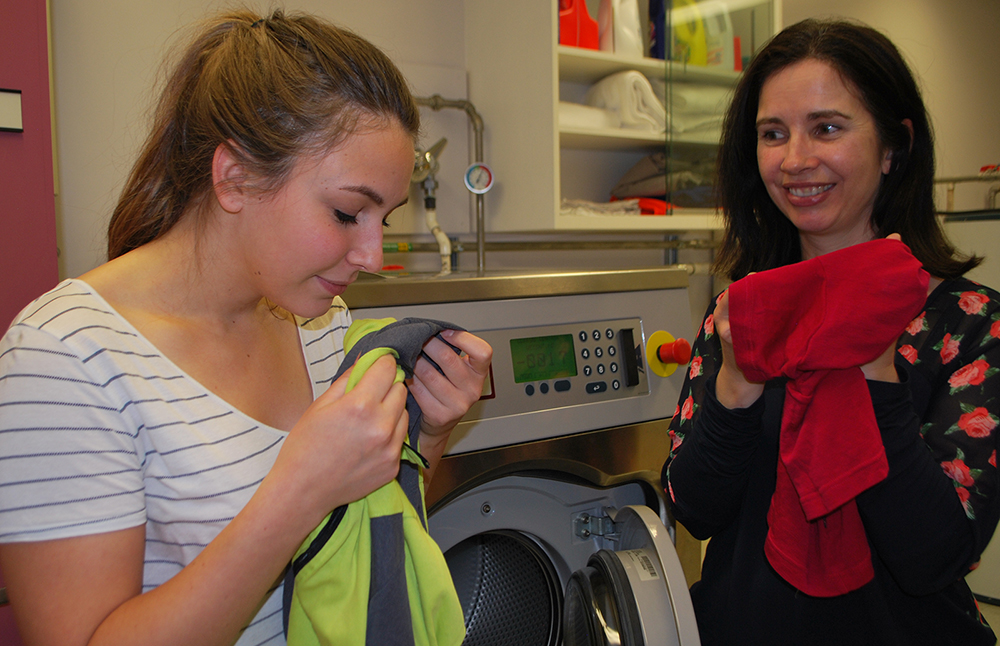
Textile scientist Rachel McQueen, right, and undergraduate student Lauren Degenstein will sniff more than 100 stinky items of clothes to discover the smelliest fabrics and fabric blends. The information will be shared with consumers and producers in order to help them make better buying and manufacturing decisions.
Do you have a piece of clothing that smells icky or downright stinks under the arms, even after you wash it? Do NOT throw it out. Instead, donate it to science!
Textile scientist Rachel McQueen of UAlberta's Department of HUman Ecology, and undergraduate student Lauren Degenstein are looking for stinky clothes to identify which fabrics and fabric blends are most prone to odour buildup.
The information will be shared with consumers and producers to help them make better buying and manufacturing decisions. Consumers may also be able to avoid sending clothing to the landfill that is odorous but otherwise in good condition.
To conduct the study, McQueen needs 100 to 200 different samples and so far she's short a whole bunch of unpleasantly sweat-scented apparel.
"It's anonymous, there's no name attached to the clothes," said McQueen. "We do want to know if any items come from one person, so you just indicate that on the form when you drop it off."
McQueen and Degerstein will characterize and analyze the items' fibre content and fabric structures, as well as look at mass and thickness.
It doesn't matter whether the offending garment makes you wrinkle your nose as soon as it comes out of the washing machine or whether it only starts to waft new waves of nastiness after you wear it for a while.
Nor is it a problem if the clothing is missing a tag or has been stored in your closet for years, or if no one else reacts to its smell the way that its owner or their family and friends do.
"We're not evaluating the odour, we're evaluating the fabric," said McQueen. "I want people not to have preconceived ideas of what we want because it really is about what they perceive to be smelly."
To that end, there's also a research role to play for people who do not have smelly specimens on-hand to donate but who have dumped smelly clothes in the past because they had reached the point of no-return, when laundering wasn't sufficient to remove the reek.
They are invited to fill out an online survey about their experience with odoriferous attire and how their behaviour changed in relation to it. For instance, did they decline to give it to charity because it smelled?
"Ultimately, the study is about how the behaviour may have negative consequences on the environment," said McQueen.
Smelly clothing can be dropped off in the main foyer of the Human Ecology Building, located at 116th Street and 89th Avenue, Monday to Friday between 7:00 a.m. and 6:00 p.m.
To donate, and to find out more information, visit the study's website.